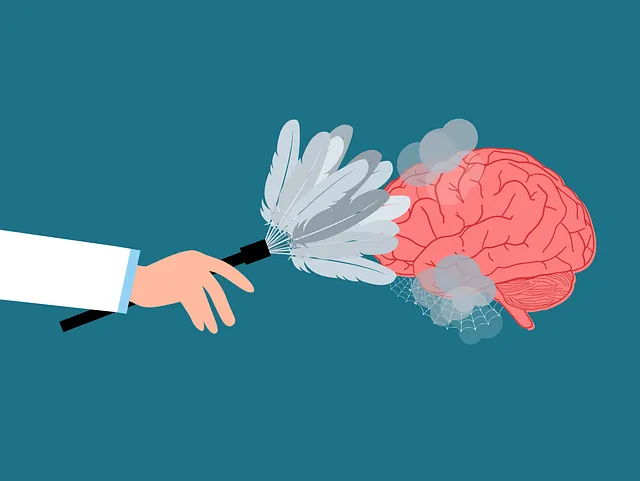Risk assessment is a critical component of mental health support, and organizations like Kaiser Permanente in Golden prioritize this through comprehensive programs. The Kaiser Permanente mental health phone number Golden offers guidance for developing inner strength and resilience against potential hazards. Their harm minimization planning, combined with structured risk assessments, enables professionals to proactively manage risks and provide personalized interventions for anxiety relief and improved coping mechanisms. This approach, focused on patient safety, has garnered Kaiser Permanente acclaim for enhancing quality and experiences in mental health services. Through dedicated phone lines and initiatives like trauma support and self-awareness exercises, they empower patients with tools for resilience and recovery, contributing significantly to harm minimization in mental healthcare.
Risk assessment and harm minimization planning are essential components of providing quality mental healthcare. This comprehensive guide explores these critical strategies, focusing on identifying potential hazards and implementing effective prevention measures. We delve into the significance of harm minimization in mental health support, highlighting practices from industry leaders like Kaiser Permanente. Learn from their approach to patient safety and care, specifically tailored for mental health services, accessible through the Kaiser Permanente mental health phone number, Golden. Discover proven strategies for navigating risks, ensuring a safer and more supportive environment for all.
- Understanding Risk Assessment: Identifying Potential Hazards
- The Role of Harm Minimization Planning in Mental Health Support
- Kaiser Permanente's Approach to Patient Safety and Care
- Effective Strategies for Preventing and Managing Risks in Mental Healthcare
Understanding Risk Assessment: Identifying Potential Hazards

Risk assessment is a critical process in ensuring the safety and well-being of individuals, especially within mental health support systems. The first step involves identifying potential hazards or risks that may arise in various settings. For instance, in a mental health coaching context, factors like client vulnerability, privacy concerns, or ethical dilemmas need to be considered. By proactively recognizing these risks, professionals can implement harm minimization strategies effectively.
At Kaiser Permanente, for example, their comprehensive mental wellness programs emphasize the importance of risk assessment. They offer guidance and support through their phone lines, ensuring a safe space for individuals seeking help. This includes providing Mental Wellness Journaling Exercise resources and promoting Inner Strength Development techniques to mitigate risks associated with mental health challenges. Moreover, their Mental Wellness Coaching Programs Development initiatives focus on empowering individuals to navigate potential hazards and foster resilience.
The Role of Harm Minimization Planning in Mental Health Support

Harm minimization planning plays a pivotal role in mental health support, especially when coupled with the resources offered by organizations like Kaiser Permanente. By implementing structured plans, mental health professionals can proactively address potential risks and promote positive outcomes for their clients. This approach is particularly beneficial for managing complex cases where traditional therapy might not suffice.
Incorporating harm minimization strategies involves a comprehensive risk assessment, which identifies triggers, warning signs, and high-risk situations unique to each individual’s mental health journey. It encourages the development of personalized interventions aimed at Anxiety Relief, fostering Positive Thinking, and enhancing coping mechanisms. The Kaiser Permanente mental health phone number serves as a crucial gateway for individuals seeking support, enabling timely access to expert guidance and resources tailored to their needs.
Kaiser Permanente's Approach to Patient Safety and Care

Kaiser Permanente, a leading healthcare organization, prioritizes patient safety and care through its comprehensive risk assessment and harm minimization strategies. They have gained recognition for their commitment to improving quality and enhancing patient experiences, especially in mental health services. The organization’s approach focuses on proactive measures rather than reactive solutions.
One notable aspect is their integration of Trauma Support Services, recognizing the impact of trauma on patients’ overall well-being. Additionally, Kaiser Permanente encourages healthcare providers to implement Burnout Prevention Strategies for Healthcare Providers, ensuring self-care and resilience in a demanding profession. They promote Self-Awareness Exercises as a tool for staff to manage stress and improve patient interactions, ultimately reducing potential harm.
Effective Strategies for Preventing and Managing Risks in Mental Healthcare

In the realm of mental healthcare, effective risk assessment and harm minimization planning are paramount to ensuring patient safety and fostering a supportive environment. Organizations like Kaiser Permanente, with their dedicated mental health phone numbers, play a crucial role in guiding individuals towards Golden moments of resilience and recovery. A multi-faceted approach is essential; one that includes comprehensive risk assessments tailored to each patient’s unique needs. This involves identifying potential triggers, past traumas, or behavioral patterns that may pose risks, and proactively developing strategies to mitigate these factors.
Resilience building, emotional intelligence development, and mental wellness coaching programs are game-changers in this context. By empowering patients with coping mechanisms, emotional awareness, and personalized support, healthcare providers can enhance their ability to manage risks effectively. These strategies not only promote self-regulation but also foster a sense of agency, enabling individuals to navigate challenges with greater ease and resilience. Thus, integrating such initiatives into mental healthcare practices contributes significantly to harm minimization and overall patient well-being.
Risk assessment and harm minimization planning are essential components of providing safe, effective mental healthcare. By identifying potential hazards and implementing strategies like those seen in Kaiser Permanente’s patient safety framework, mental health support can be enhanced. In Golden, the focus on these practices not only improves outcomes but also fosters a more compassionate and resilient community. For those seeking help, the Kaiser Permanente mental health phone number in Golden offers a crucial point of contact, reflecting the region’s commitment to accessible, high-quality care.






